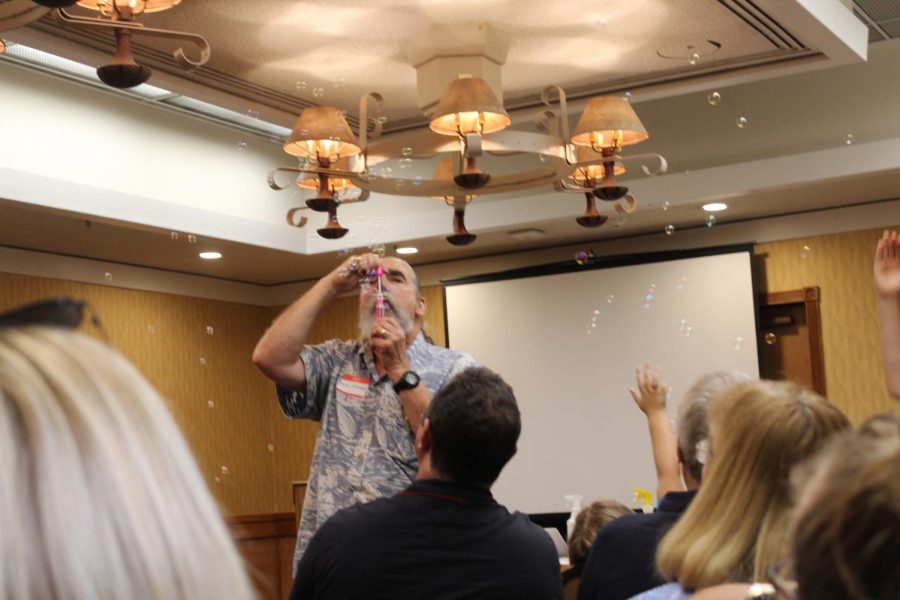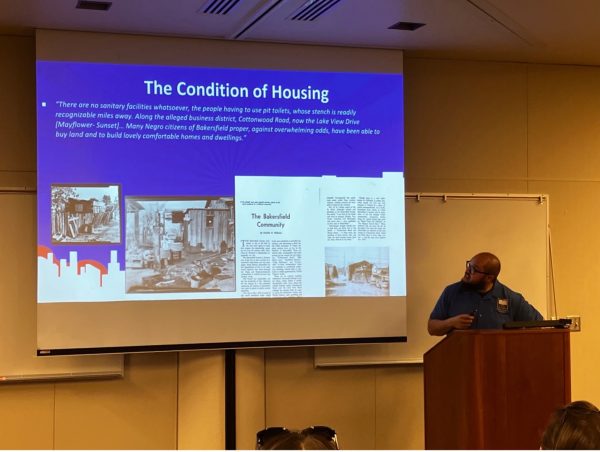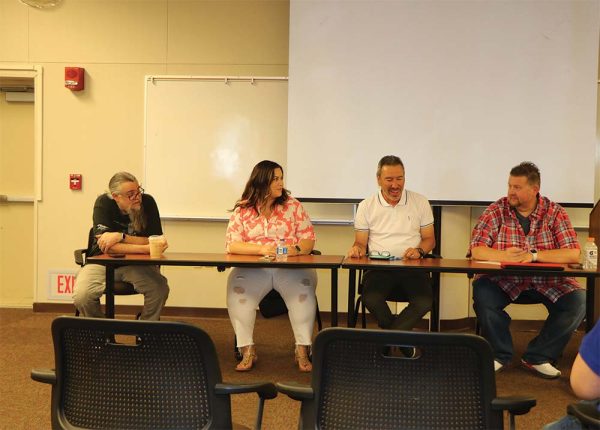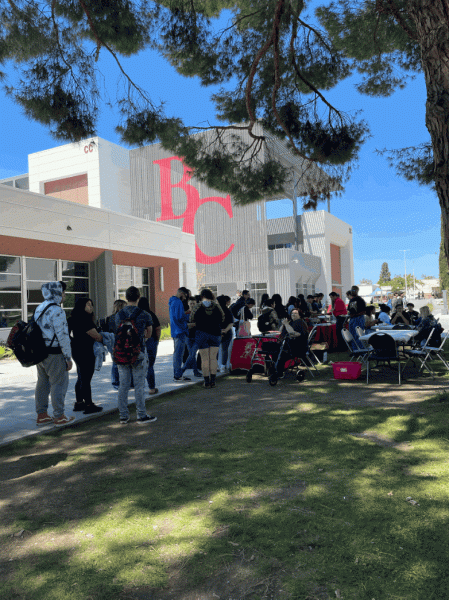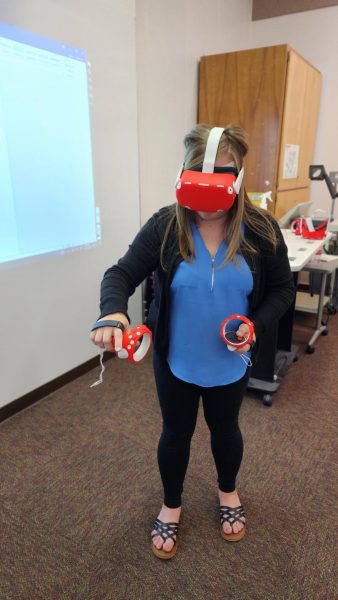Spectacular World of Science Convention shows the scientific side of Bakersfield’s community
Dave Hanley blowing bubbles that stack onto the audience.
April 15, 2018
A line for booths ranging from rocks to robotics filled the room at the Double Tree Hotel on April 7 during The Spectacular World of Science 8th Annual Convention from 10 a.m. to 4 p.m. The event was presented by the Buena Vista Museum of Natural History and Science to demonstrate the scientific side of the community.
Attendees would need to pay an admission fee of $9 for a child and $12 for an adult.
Dave Hanley had a room where he talked science and asked audience members to participate in the activities that he was conducting.
Hanley, a board member of the Buena Vista Museum, made the science experiments that he was conducting more of a performance, which is where his motto “Science as a Performing Art,” or SAAPA comes into play.
He wants people to know about science in Kern County. Hanley claimed, “there is more science in Kern County than anywhere in the continental United States.” He wants to promote to scientific literacy for better quality of life improvements.
Also in the main lobby were the science projects of students that will be going to a state science competition. Attendees could vote on which project they liked best and the top three would get money prize with third place getting $50, second $100 and first $150.
The third-place winner was Gianna Nicomedes. At 12 years old her project was on rocket science and it dealt with how fin placement affects a rocket. Nicomedes spent about a week or two on research and two days on experimentation. She might try rocket science but NASA is defiantly her goal.
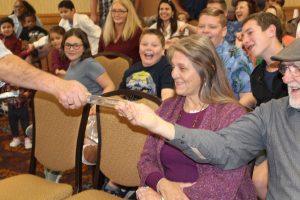
Dave Hanley using the audience to conduct electricity to light up a bulb.
Alexander Fan, 14, won second place. Fan’s project, Medication Adherence, proposed that men take less prescribed medication than women. He got that idea from his father, who is a doctor, complaining that his patients do not take their medication. He thought that women would take their medication more because of estradiol which enhances memory. Through his research he found out that 43 percent of medication adherence belongs to women and men at 36 percent.
Zachary Been, 12, won first place. His project, Grassy Gas, involved using lawn clippings to create biofuel. His experimentation took two days while his research took five hours.
Notable speakers at the event were Bakersfield College Professor Nick Strobel who was presenting on eclipses. Miles Muzio talked about CSI forensic.
Erika Martinez, an attendee, heard about the event through her sister. Her sister’s child did not have a project so Martinez was “just coming to see,” the event. She learned that it takes about a month for a rock to get shiny.
BC Professor Michael Korcok was there with his son because he saw a flyer for the event. Korcok said that he had been waiting a few weeks to attend. He thought that the event was “terrific.” His son, John, played on a bicycle that would power light bulbs if the rider went fast enough. He thought that the game was “too easy.”


